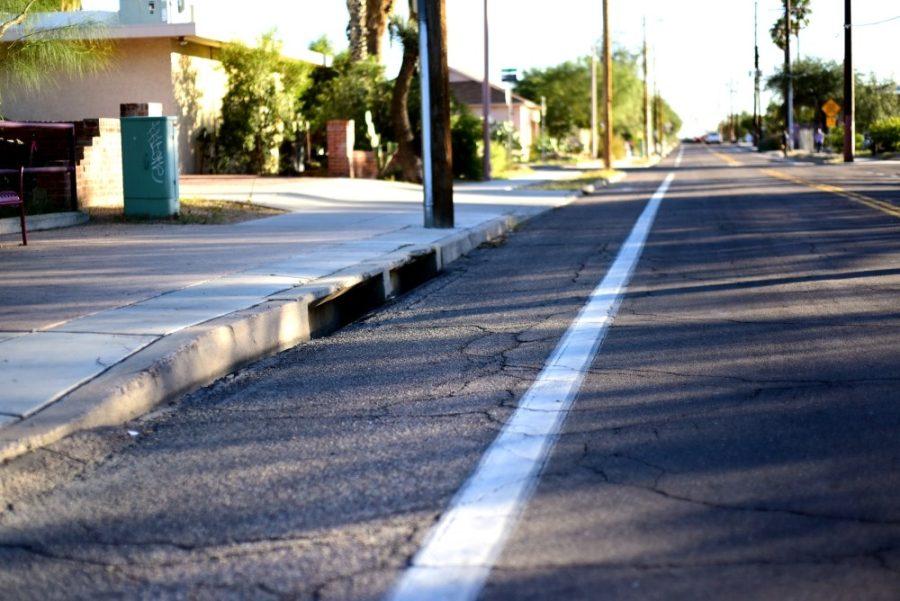Michael Ortega, Tucson city manager, hosted a series of town halls on Nov. 17, 18 and 21 to obtain public opinion on Proposition 409, which would increase local sales tax by half a cent.
According to projections presented by Ortega, the sales tax would raise $250 million over its five-year proposed implementation.
In the proposition’s current form, 60 percent of generated revenue would go to police and fire department capital gains, while the remaining 40 percent of revenue raised would be spent on road repair.
RELATED:Top takeaways from Arizona Board of Regents meeting
Ortega said the emphasis of spending for police and fire departments would be on the purchase of new emergency response vehicles and equipment.
Capt. Carla Johnson, assistant chief of the Tucson Police Department, said a legitimate need exists to update the force’s fleet of vehicles.
One major concern arises from the fact that 63 percent of the department’s vehicles are in need of recommended repairs, Johnson said. A few months ago, Johnson said a critical incident occurred where an officer was unable to reach the scene of an emergency because their vehicle broke down.
If the voters approve the proposal in its current form, the police department would be able to begin to replace it’s fleet, Johnson said.
The road repair budget would go toward both residential and major streets around Tucson.
“My recommendation is 65 percent of these road repair funds go to major streets and [the] rest go to residential,” Ortega said.
This distribution will provide the direct benefit to the largest segment of the population, Ortega said.
Jesse Lugo, a member of the 2012 Bond Oversight Commission and long-time Tucsonan, said he opposed the integration of emergency response funding and road repair into one proposition.
He said the Road Recovery Program, which previously created a bond funded by a voter-approved increase in property taxes, should be extended through the creation of a second proposition, and all funds from Proposition 409 should be given to emergency response needs.
Lugo expressed concern that, even though polling conducted by the city shows 67 percent of citizens are likely to approve the proposition, it won’t pass in its current formula.
Ortega didn’t respond to a comment from the crowd claiming the tax was regressive and disproportionately hurts the working poor. Previously, Ortega told the town hall that infrastructure supports economic development within the community.
Daryl Cole, Tucson’s transportation director, said $700 million in repair costs are necessary to improve road conditions for the long term.
In a concurrent but separate meeting, the Arizona Board of Regents discussed an initiative to save Arizona’s universities money by exempting them from paying in-state sales tax.
RELATED: Arizona votes ‘yes’ on Prop. 206 to raise higher minimum wage
Regent Rick Myers said any diminishment in town and city budgets as a result of this exemption would be raised through the increased economic output produced by a more educated workforce, which draws increased federal and private investment.
Tom Belshe, deputy director for the League of Arizona Cities and Towns, said he appreciates the board’s decision to table the matter.
Proposition 409 will be presented to voters in May 2017 for approval.
Before then, the city wants to collect voter opinions on three segments of the proposal: The length of the increase in sales tax, the division of funds between first responders and road repairs and the distribution of road repair between neighborhoods and major roads.
Individuals can email comments to comments@tusconaz.gov.
Follow Randall Eck on Twitter.









